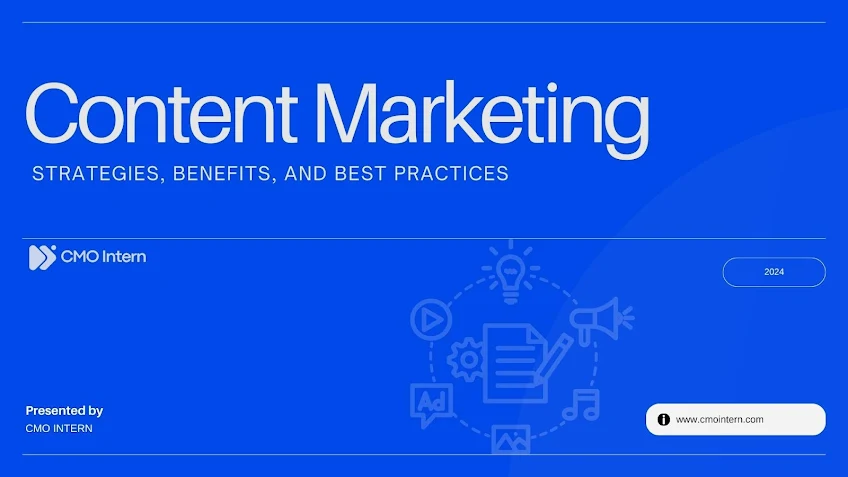What is Content Marketing?
Content marketing is a strategic marketing approach focused on creating and distributing valuable, relevant content to attract, engage, and retain a clearly defined audience. Unlike traditional advertising, content marketing aims to provide useful information that helps consumers make informed decisions, ultimately driving profitable customer action.
Key Components of Content Marketing
1. Valuable Content Creation: This involves producing articles, videos, podcasts, infographics, and social media posts that resonate with your target audience.Why is Content Marketing Important?
Content marketing is essential for several reasons:
- Boosts Brand Awareness: High-quality content helps establish your brand as an authority in your industry, increasing recognition among potential customers.
- Generates Leads: Companies that prioritize content marketing experience significantly higher lead generation compared to those that do not.
- Enhances Customer Loyalty: Providing consistent, valuable content fosters trust and encourages repeat business, leading to long-term customer relationships.
How Content Marketing Works
Stages of the Sales Cycle
1. Awareness Stage: At this stage, content should address potential customers’ pain points and challenges. Educational blog posts and videos can effectively engage this audience.
Example: A fitness studio might publish articles on "10 Tips for Staying Fit at Home."
2. Consideration Stage: Here, content should provide detailed information about your products or services, helping prospects evaluate their options. Case studies and comparison guides are particularly effective.
Example: A software company could create a case study highlighting how their solution improved a client’s efficiency.
3. Closing Stage: In the final phase, focus on compelling content that emphasizes your expertise and unique selling points. Testimonials, detailed product demos, and buyer's guides can be persuasive.
Example: A photography service might showcase a video portfolio alongside testimonials from satisfied clients.
Getting Started with Content Marketing
Steps to Develop a Content Marketing Strategy
1. Identify Your Audience: Understand who your target customers are, their interests, and their pain points. Create buyer personas to guide your content creation.
2. Choose Content Formats: Depending on your audience and goals, select the most effective formats, whether it’s blog posts, videos, or social media content.
3. Plan Your Distribution: Determine the best channels for reaching your audience. A multi-channel approach often yields the best results.
4. Create a Content Calendar: Develop a schedule for content creation and publication to maintain consistency.
5. Analyze and Optimize: Use analytics tools to measure the effectiveness of your content. Adjust your strategy based on what works best.
Content Marketing and SEO
Integrating SEO into your content marketing strategy is crucial for maximizing visibility. Here are key SEO practices:
- Keyword Research: Identify keywords your audience uses when searching for information related to your industry. Use tools like Google Keyword Planner to find relevant keywords.
- On-Page SEO: Optimize headings, meta descriptions, and content with your targeted keywords to improve search engine rankings.
- Quality Content: Focus on creating high-quality, informative content that answers users' queries effectively. Content that provides real value is more likely to rank well.
- Building Backlinks: Encourage reputable sites to link to your content, which can significantly boost your SEO.
See more: Top 16+ Tech PR Agencies in 2024 [Updated List]
Conclusion
Content marketing is a powerful tool in today’s digital landscape, offering a way to connect with your audience and drive business growth. By focusing on valuable content, understanding your audience, and integrating SEO best practices, you can create a successful content marketing strategy that outperforms your competitors.
By following this comprehensive guide, you'll enhance your content marketing efforts and improve your chances of ranking higher on search engines, ultimately leading to increased engagement and sales.

.webp)


